The turret was moved by two hand control grips with
firing buttons similar to a one-button joy stick. Hydraulics normally
powered elevation and windage and hand cranks were for backup. The left
foot was used to control the reflector sight and the right foot operated
a push to talk intercom switch.
|
|
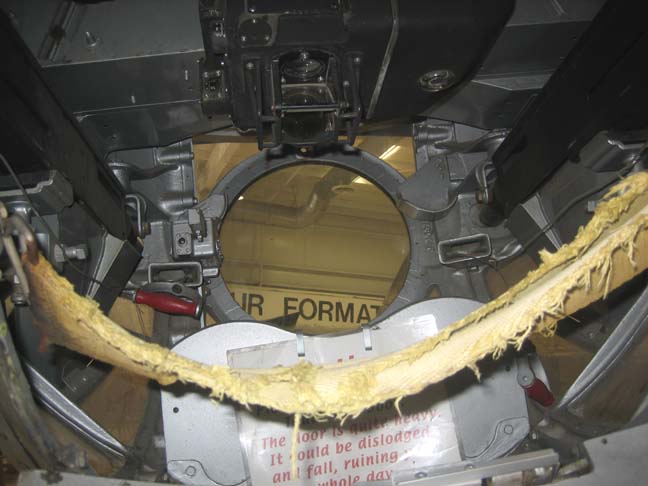
|
Small ammo boxes rested on the top of the turret and the
remaining ammo belts were stowed in the already cramped turret by means
of an elaborate feed chute system. A reflector sight was hung from the
top of the turret, positioned roughly between the gunners feet. All I
can say is that it must have been one hell of a ride in there!
|
|
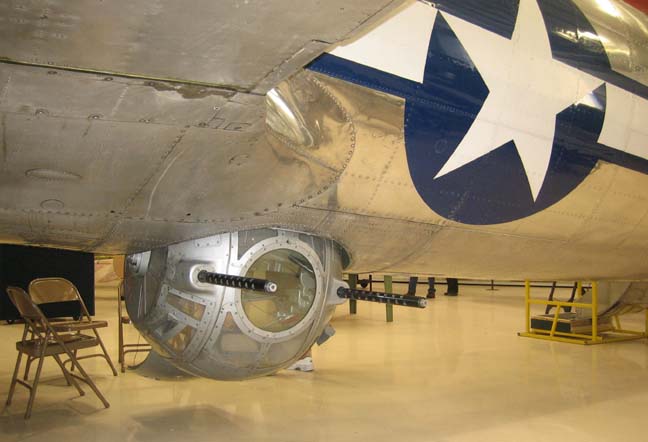 |
I remember as a kid that I built a model of this same
aircraft and when I was taking this picture it reminded me of it. The
reason for that was because of this blue and white star on the side. You
see, the model had the same thing as a decal that you had to dip in
water and then apply. That's also a time when you could by plastic model
glue that would hold really good but was soon taken off the market
because to many kids were using it for recreational purposes instead of
what it was intended for.
|
|
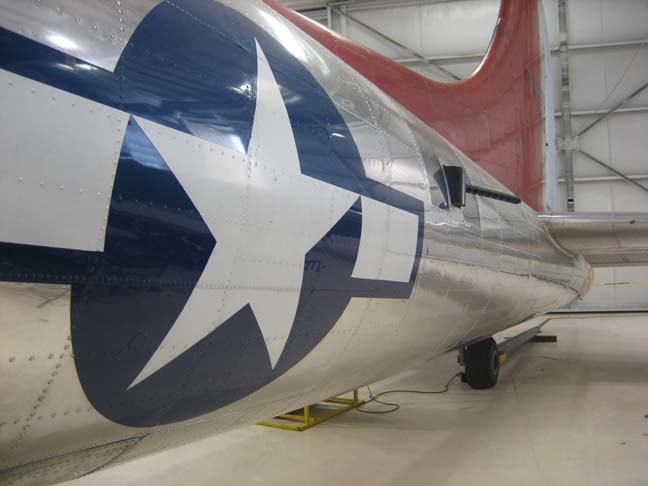 |
|
This was the only shot I could get that had the majority of the aircraft
in it. You talk about one amazing plane the B-17 was really a work of
art. With it being able to take heavy damage and still fly the crew home
safely, this was a pivotal plane in the World War II. |
|
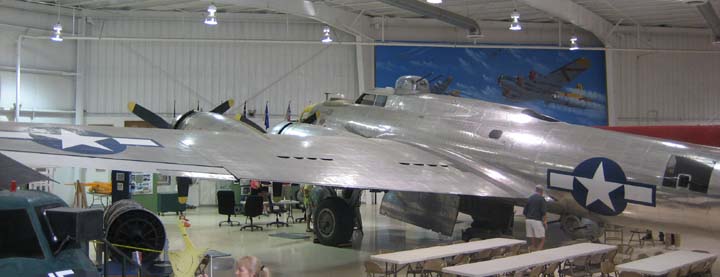 |
|
Here are a few stats about the Flying Fortress that
you might find interesting.
|
|
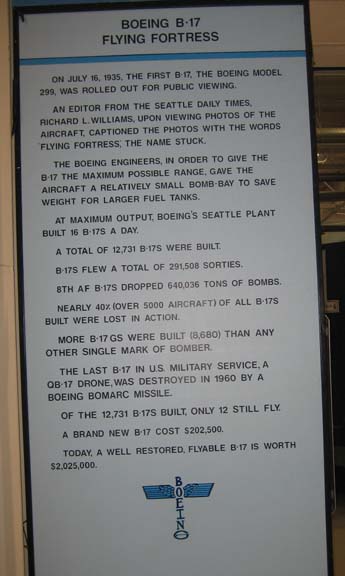 |
This is an artists rendering of a B-17 that was heavily damaged and was
trying to fly home. If the crew didn't have enough problems already,
they noticed an German aircraft on there wing which was sent to shoot
the big bomber down. Check out the true story below that gave me chills
after reading it as it's a wonderful piece of history.
|
|
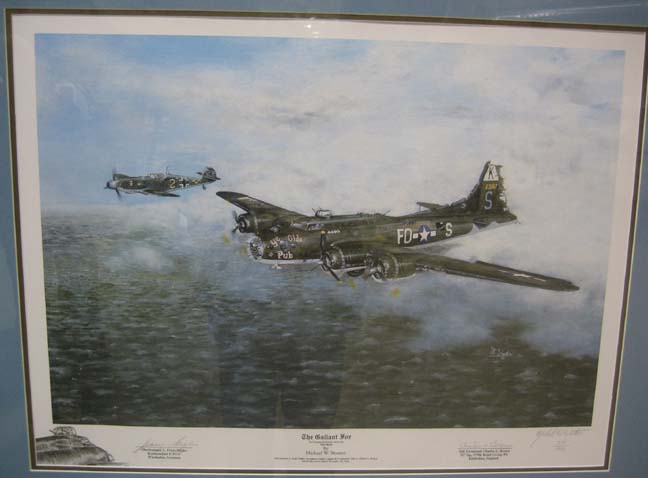 |
|
The Charlie Brown Story
|
|
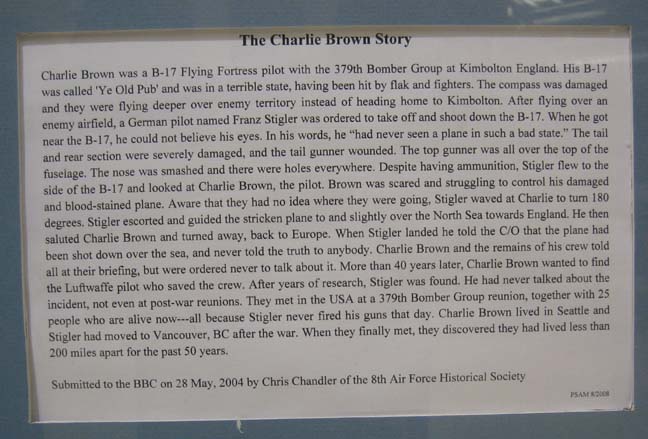 |
|
1
2
3
4
5
6
7
8
9
10
11
12
13
14
15
16
17
18
19
20
21
22
23
24
25 |